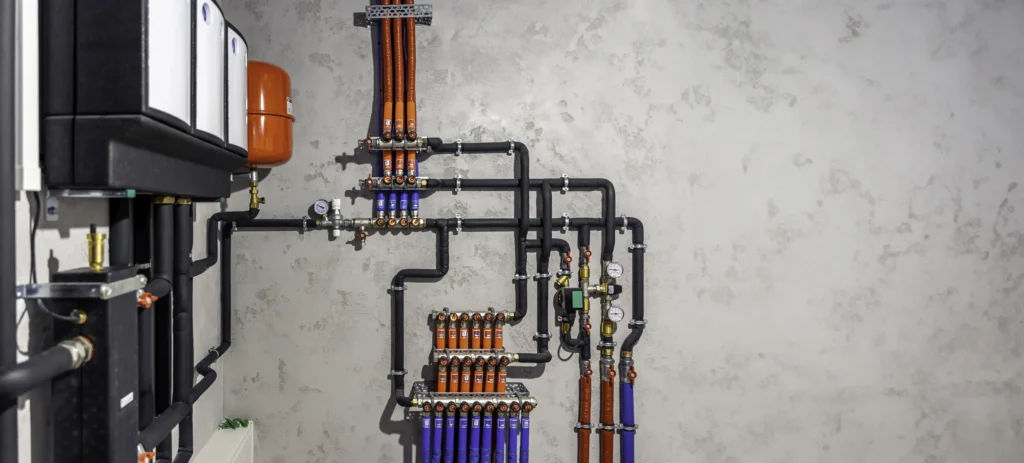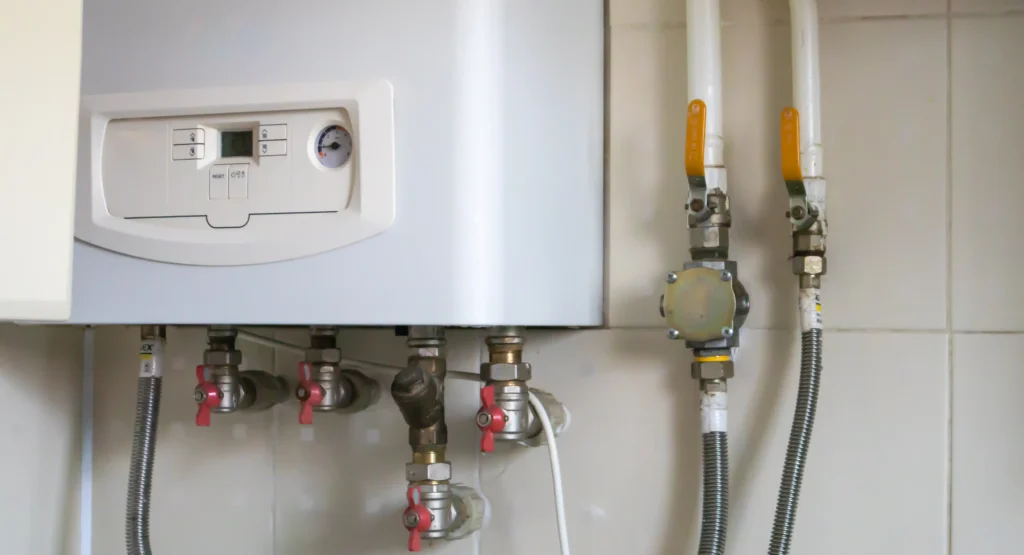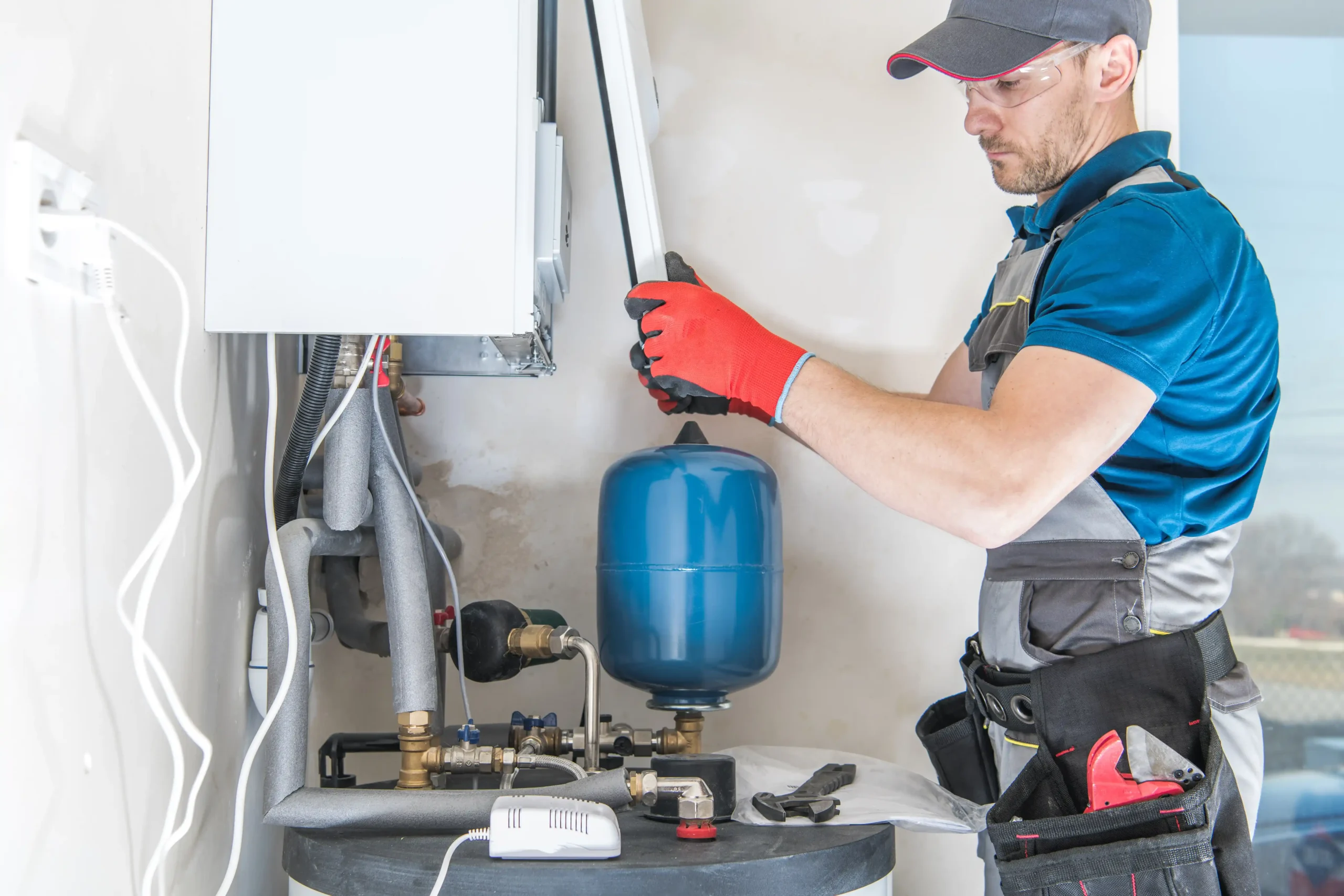Getting a new hot water system in Orange, NSW doesn’t have to send you swimming in debt. Whether your old tank’s finally called last drinks or you’re upgrading to a more efficient unit, there are smart ways to trim the installation bill. In Australia, Hot Water System Installation typically ranges from about $1,000 to $7,000. In regional areas like Orange, costs can skew higher due to travel and labour. But don’t worry – these seven insider tips will help you shave dollars off your quote. From comparing local plumber rates to tapping into NSW rebates, we’ve got you covered with practical advice. Let’s dive in!
Whether your old tank’s finally called last drinks or you’re upgrading to a more efficient unit, there are smart ways to trim the installation bill. Maybe your system’s been chewing through power or delivering lukewarm showers — whatever the reason, saving on upfront costs is always a win. From picking the right system size to timing your installation for off-peak seasons, a few savvy choices can make a big difference.

1. Cut Hot Water System Installation Costs by Getting Local Plumber Quotes
Getting multiple quotes from licensed local plumbers can help you find a competitive price. Cutting costs starts by shopping around. In Orange, NSW, not all plumbers charge the same – on average, plumbers in Australia bill roughly $100–$150 per hour (plus a call-out fee of $60–$100). To save:
- Ask for itemised quotes. A good quote breaks down parts (tank, valves, fittings) and labour. This makes it easier to spot where you can save (e.g. using your own supplier or reusing parts).
- Compare multiple plumbers. Get at least 3 quotes from licensed plumbers in Orange NSW. The Level Electrical & Air team reminds us that licensed pros ensure proper installation and let you compare prices effectively.
- Negotiate or bundle jobs. If you need other plumbing work (e.g. fixing a leaky tap or adding an outlet), try bundling tasks. Plumbers often give a better deal if they can do several jobs in one visit (saving them travel time).
- Check reviews and credentials. Never sacrifice safety for savings. Stick with licensed plumbers or Master Plumbers. A low quote might cost you more if the work fails or isn’t compliant.
By getting quotes in writing and negotiating, you’ll dodge sticker-shock surprises. Remember, plumbers in Orange may include a travel or after-hours surcharge, so clarify these upfront.
2. Pick the Right System (Size & Type)
Choosing the optimal hot water system for your Orange home is a top way to cut costs. Oversized or fancy systems can blow your budget; the trick is matching capacity and type to your needs. Consider these factors:
- Capacity (Size): A smaller household in Orange might be fine with a 135–160 L tank, whereas a big family may need 250+ L or a continuous-flow system. Too big, and you pay for unused energy; too small, and you’re running out of hot water (and money) during winter showers.
- Type of system: The main system types have different up-front and running costs. Generally, electric storage systems (tank heaters) are cheapest to buy and install, but their running costs can be higher unless you have solar panels. Gas systems (natural gas or LPG) cost more upfront (around $1,500–$3,000 installed) but heat water quickly and run cheaper if gas is available. Solar water heaters have high install costs ($3,000–$7,000) but can slash energy bills over time by harnessing Orange’s sunshine (though winter performance is lower). Heat pump systems cost $2,500–$5,500 for the unit and more to install, but they run on only ~30% of the energy of a conventional electric system. Weigh the up-front cost vs long-term savings carefully.
To illustrate, here’s a quick cost table (approximate for New South Wales):
| System Type | Installation Cost (AUD) | Running Cost | Notes |
| Electric Storage | ~$1,000–$2,000 | High (unless solar-powered) | Cheapest to install; simple units. |
| Gas (Natural or LPG) | ~$1,500–$3,000 | Lower than electric (if gas access) | Fast hot water; may need gas hook-up or bottle. |
| Solar (Tank w/ Panels) | ~$3,000–$7,000 | Very low (solar offset energy) | Good in sunny Orange; may need electric/gas booster. |
| Heat Pump | ~$3,000+ (after rebates) | Low (uses ambient heat) | High efficiency; quieter (like AC unit); NSW discounts apply. |
(Costs vary by model, brand, and installer. For reference, the Australian government notes electric tank heaters are the cheapest to purchase and install, while heat pumps and solar can add more to the upfront spend.)
Choosing the right type means you’re not overspending on capacity or features you don’t need. For example, if you live alone or in a couple with solar panels, an electric tank might be fine and avoids extra plumbing. If your place has natural gas piped in, a continuous-flow gas unit can be cost-effective for large, quick showers. Always balance the install price with what you’ll pay in running costs – sometimes a pricier heat pump or solar unit pays off in lower energy bills and rebates.
3. Time Your Installation Smartly (Off-Peak Season)
When you schedule can affect the bill. Plumber demand in Orange peaks in winter as hot water breaks down from heavy use or freezing pipes, and in holiday periods when everyone’s home. Try to book your installation in shoulder seasons (spring or autumn) when plumbers may have more availability and might offer a deal. Key points:
- Book ahead of cold snaps. Don’t wait until the morning you discover no hot water in mid-July – call in advance during late summer or autumn. Fewer emergency call-outs means plumbers might quote you a lower rate.
- Look for sales events. Some suppliers (or even Bunnings, Reece, etc.) run promotions for hot water systems at certain times (e.g. end-of-financial-year, spring sale). Timing your purchase with a sale can save on the tank cost, which cuts the total invoice.
- Avoid public holidays and weekends. Urgent installs on weekends or holidays can attract higher labour rates. If you can flex your schedule by even a few days, you could avoid premium charges.
By planning, you’re less likely to pay emergency fees or miss out on off-season deals. Plus, a calm schedule means the plumber can do a neat job (rushing is costly for you, too!).
4. Tap Into Rebates & Incentives (NSW Hot Water Rebate)
Don’t leave free money on the table! Both state and federal programs offer discounts on efficient hot water upgrades. In NSW, the Energy Savings Scheme (ESS) provides upfront discounts when you swap to a high-efficiency system. For example, if you replace an old electric tank with a new air-source heat pump, you could get $400–$670 off your installation. Replacing a gas system with a heat pump nets $190–$310 off. These incentives apply at the quote stage (the installer applies them), so ask your plumber about “NSW hot water rebates” when getting estimates.
Additionally, Australians can claim federal Small-scale Technology Certificates (STCs) on eligible solar and heat-pump systems. Together with the NSW scheme, these credits can slash around $700–$900 off a heat pump install. For a concrete example: Solar Choice notes that even after rebates, a mid-range heat pump might cost about $3,000 installed, so the incentives really matter.
Quick tips: Always confirm the current rates (these programs can change). Make sure any installer you use is registered to provide these rebates. And be aware: to qualify in NSW, you typically must already have a water heater outside (as ESS requires).Even if you’re not going heat pump, the NSW Government may offer grants or discounts on solar hot water – check the official NSW Energy website for current rebates and eligibility.Claiming a rebate can mean hundreds off your final bill.
5. Prep the Site & Do It Yourself (Where Safe)
Labor is usually the biggest chunk of an installation bill, so reduce the plumber’s work where you safely can. A bit of DIY prep saves hours of billable time:
- Remove the old unit (if possible). If your old water heater has cooled and drained, you might unbolt it and slide it out for the plumber. That way, they don’t have to do the demo work (ask first – sometimes removing the old requires permits if gas is involved). Even disconnecting power to the old heater or uncoupling garden hoses can shave 30+ minutes off the job.
- Clear the workspace. Make sure the area around the installation (garage, roof space, or yard) is accessible. If they have to move clutter or furniture, that’s extra time (hence extra cost).
- Gather permits and checks. In NSW, installing gas or electric water heaters requires permits. Check with your local council or the plumber if there are forms you can fill in advance. Having paperwork ready avoids delays.
- Hire electrician separately (if needed). If you’re switching fuel types (e.g. no gas line and you opt for electric), you’ll need a certified electrician to wire the heater. Sometimes you can save money by line-iteming this (get an electrician quote separately) rather than through your plumber. Just coordinate both trades to come on the same day to avoid repeat call-out fees.
(Caution: Don’t touch any live gas or high-voltage wiring yourself. Only do simple tasks you’re comfortable with. Safety first!) By minimizing the plumber’s “grunt work”, you reduce hours and cut the bill. Remember: the average plumber charges around $100–$150/hr. Even saving one hour is like saving $100!
6. Shop Smart for the Heater Unit
You don’t have to buy the hot water system through your plumber, but do it wisely:
- Compare retailers. Big suppliers like Bunnings, Reece (Orange store on Peisley St), or local plumbing merchants stock major brands (Rheem, Rinnai, Dux, etc. – names you’ll recognize). Check prices online and in-store. Sometimes plumbers have trade discounts, but other times you can get a better price by buying retail, then just pay the plumber to install.
- Watch for package deals. Some companies bundle a popular system with free or discounted installation. Ask plumbers if they have a fixed-price package (e.g. “Rheem 250L electric + install for $X”). These can be cheaper than piecing together bits.
- Consider certified second-hand or refurbished? Generally not recommended for safety reasons. Water heaters wear out, and warranties/efficiency may be lost on a used tank. Instead, stick to new for peace of mind.
- Look at quality and warranty. A top-quality heater with a 10-year warranty might cost more upfront, but saves money by lasting longer (better long-term value). Read reviews, and consider energy ratings: higher star-rated units use less power. This doesn’t immediately cut installation cost, but it cuts your overall spending.
By researching your options, you avoid overpaying. For example, Hipages notes that electric hot water units tend to be the most affordable to buy, whereas solar and heat pump systems cost more up-front. Armed with that info, you’ll know where you can afford to splurge (perhaps on an efficient model) and where to save.

7. Negotiate and Bundle with Other Work
Finally, remember that prices aren’t set in stone. Skilled negotiation and smart timing can save big bucks:
- Bundle multiple installations. If you’re replacing multiple heaters (say one in your granny flat and one in your main house), ask for a multi-unit discount. Plumbers like big jobs, so they may lower the per-unit rate.
- Use referrals or reviews. Sometimes a plumber will give a discount if they know you came through a referral or if you promise to leave a good review. It doesn’t hurt to ask politely.
- Check financing options. Some companies offer interest-free payment plans for upgrades. Only use these if you’re sure the extra cost isn’t hidden – read the fine print.
- Beware “too good to be true.” If a quote is significantly lower than others, double-check what’s included. It might exclude important steps (like a permit or an electric switch) and tack them on later.
In any negotiation, be clear about your budget and priorities. Plumbers want work too – if you’ve got a limited budget, they may suggest the cheapest viable system and installation method. Open communication helps everyone.
Installing a hot water system is no small task, but by following these tips you’ll keep more cash in your pocket. Always remember that safety and compliance come first – cut costs, yes, but not corners. Use qualified local plumbers, pick the right system, and leverage government incentives to make your Orange hot water upgrade as affordable as possible. Soon you’ll be enjoying steamy showers without the financial burn!
FAQs
How much does a hot water system installation cost in Orange, NSW?
Installation typically costs between $1,000 and $7,000 in Australia. In Orange, expect around $1,500–$3,000 for standard systems. Final costs depend on system type, plumber rates ($100–$150/hr), and any additional plumbing or electrical work required.
Are there NSW rebates or discounts for installing a new hot water system?
Yes. NSW offers rebates through the Energy Savings Scheme—up to $670 off for switching to a heat pump. You can also claim federal STCs on solar or heat pump systems, saving up to $900 total. Ask your installer about current eligibility and approved systems.
Electric vs gas hot water – which is cheaper to install and run?
Electric systems are cheaper to install ($1,000–$2,000) but cost more to run. Gas systems cost more upfront ($1,500–$3,000) but are often cheaper long-term if gas is available. Choose based on energy rates, household size, and existing infrastructure.

